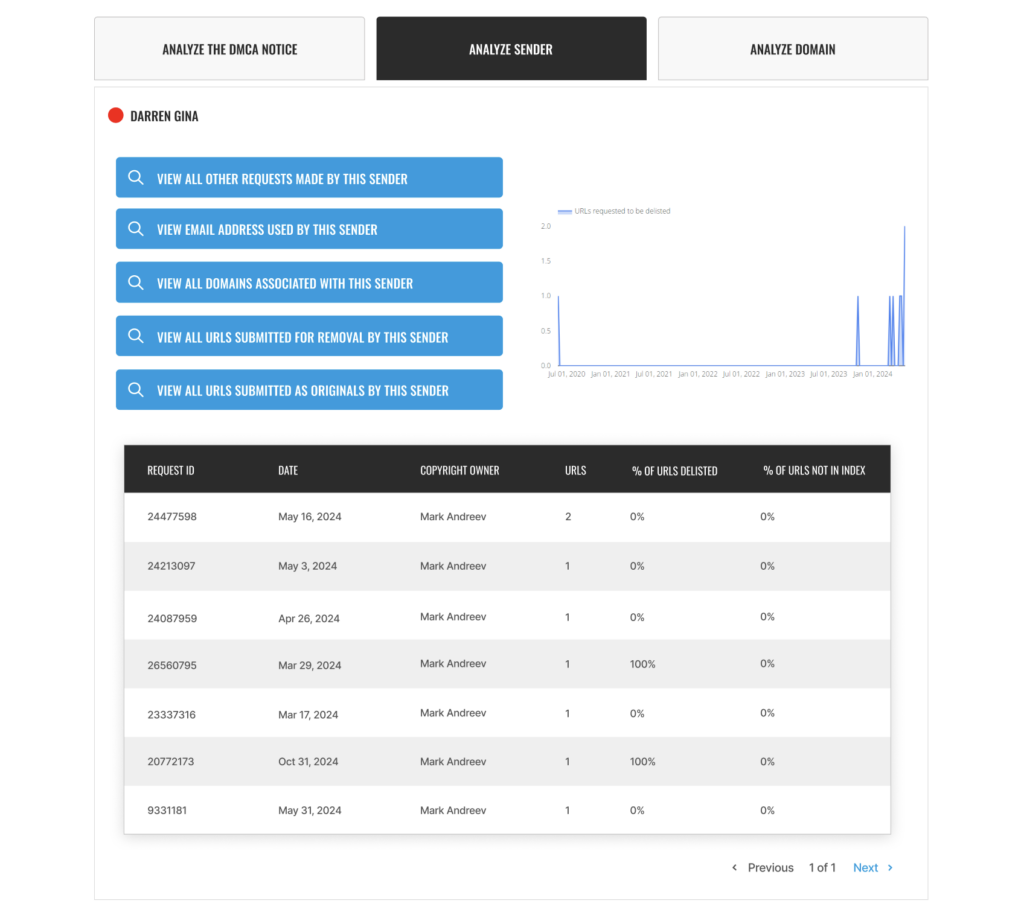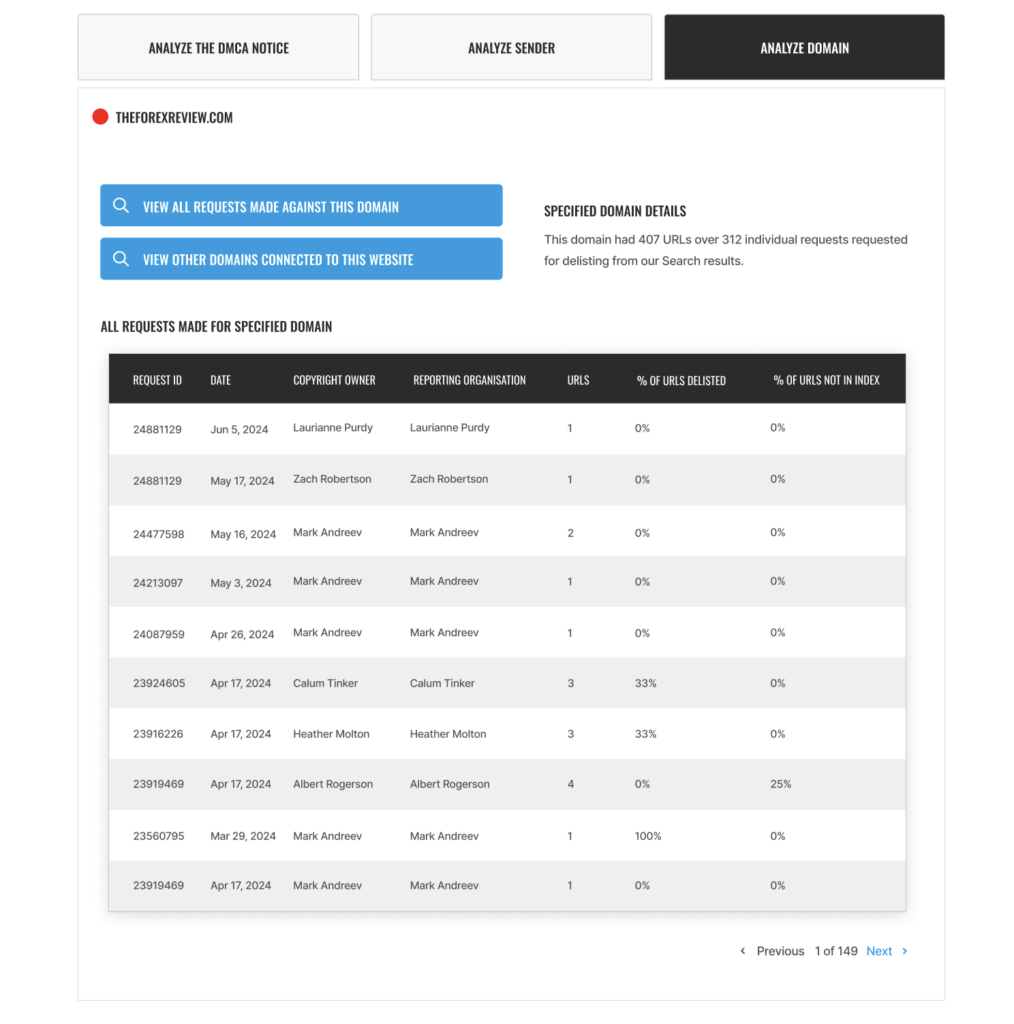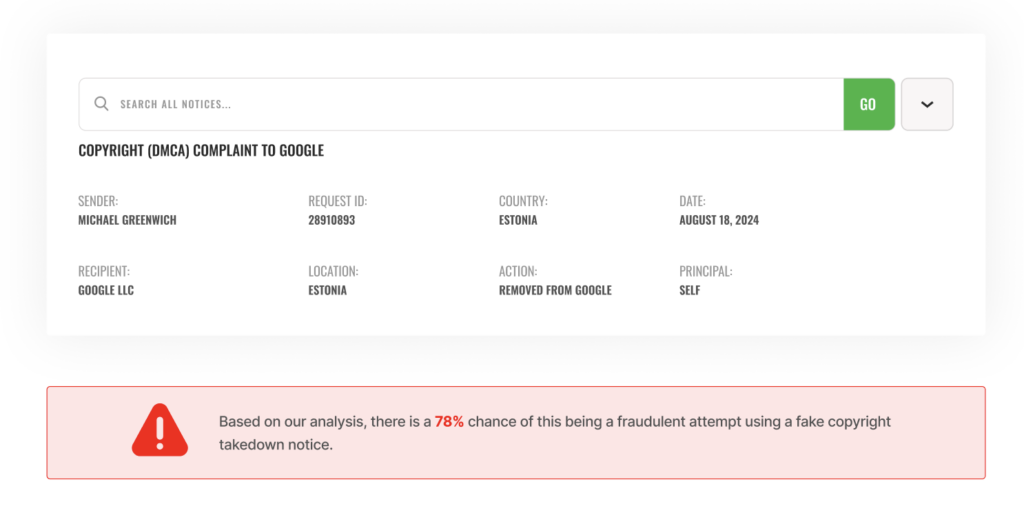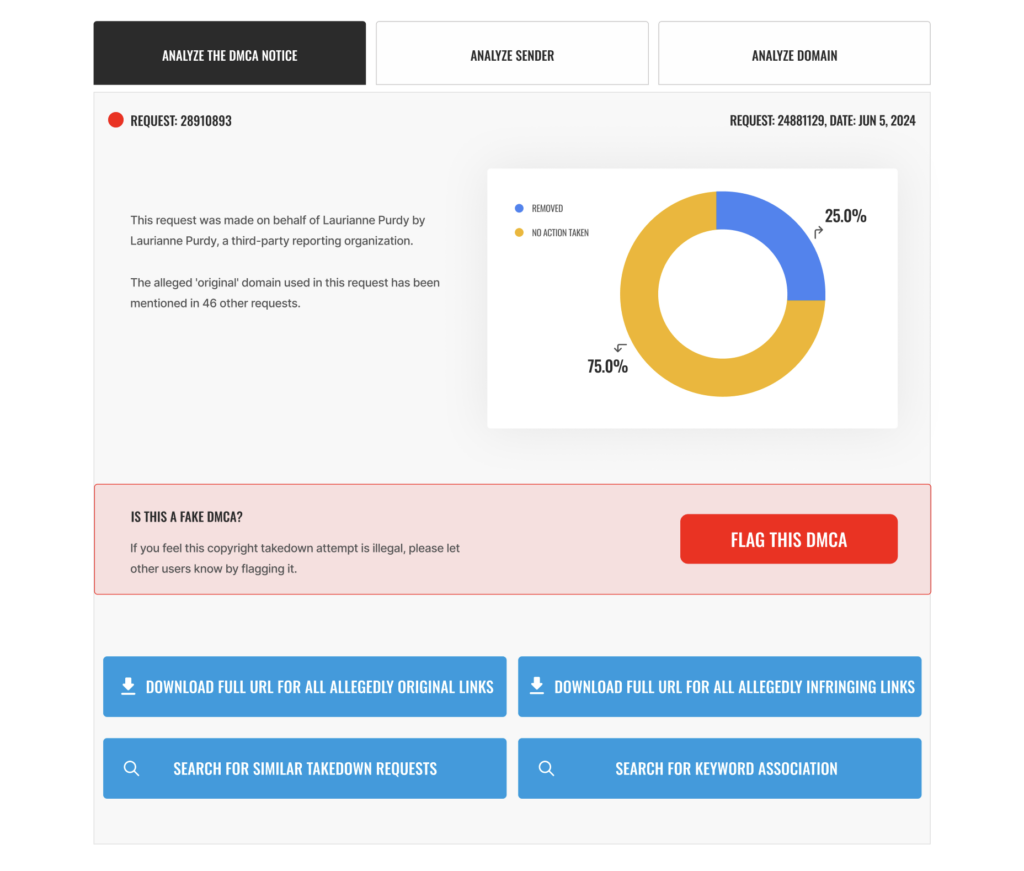What Happened?
Aboubakar Hima, a notorious arms dealer from Niger, has been making considerable efforts to obscure his involvement in questionable and clandestine arms deals across Africa. According to an investigation by the Organized Crime and Corruption Reporting Project (OCCRP), Hima, who has previously been implicated in several controversial weapons transactions, recently secured a secretive arms deal in Senegal. His past is riddled with allegations of corruption, arms trafficking, and shady dealings, many of which have involved misappropriated state funds and connections to influential figures.
Hima’s name surfaced in connection to the supply of weapons under questionable terms, often involving opaque financial arrangements that have raised suspicions of corruption and profiteering. This latest arms deal in Senegal continues his pattern of involvement in covert transactions, with little to no transparency about the nature of the contracts or the intended recipients of the weapons. Such dealings have led to significant international scrutiny, but Hima has actively attempted to suppress damaging reports and negative news about his activities.

Reports indicate that Hima has used a variety of methods to censor information, from influencing local media to intimidating journalists who seek to expose his operations. His relentless efforts to silence critics highlight a pattern of behavior aimed at maintaining his ability to operate in secrecy while avoiding accountability for the consequences of his actions. As a result, Hima’s activities remain shrouded in mystery, leaving questions about the legality and ethical nature of his business dealings unanswered.

Analyzing the Fake Copyright Notice(s)
Our team collects and analyses fraudulent copyright takedown requests, legal complaints, and other efforts to remove critical information from the internet. Through our investigative reporting, we examine the prevalence and operation of an organized censorship industry, predominantly funded by criminal entities, oligarchs, and disreputable businesses or individuals. Our findings allow internet users to gain insight into these censorship schemes’ sources, methods, and underlying objectives.
List of Fake Copyright Notices for Aboubakar Hima
| Number of Fake DMCA Notice(s) | 1 |
| Lumen Database Notice(s) | https://lumendatabase.org/notices/33545951 |
| Sender(s) | BlockWatch |
| Date(s) | Apr 18, 2023 |
| Fake Link(s) Used by Scammers | https://blockwatch.app/notorious-nigerien-weapons-broker-lands-secret-arms-deal-in-senegal/ |
| Original Link(s) Targeted | https://www.occrp.org/en/investigations/notorious-nigerien-weapons-broker-lands-secret-arms-deal-in- |
Evidence and Screenshots

How do we investigate fake DMCA notices?
To accomplish this, we utilize the OSINT Tool provided by FakeDMCA.com and the Lumen API for Researchers, courtesy of the Lumen Database.
FakeDMCA.com is the work of an independent team of research students and cybersecurity professionals, developed under Project UnCensor. Their OSINT Tool, designed to uncover and analyze takedown notices, represents a significant step forward in combating these abusive practices. It has become a valuable resource, increasingly relied upon by journalists and law enforcement agencies across the United States.
Lumen, on the other hand, is an independent research initiative dedicated to studying takedown notices and other legal demands related to online content removal. The project, which operates under the Berkman Klein Center for Internet & Society at Harvard University, plays a crucial role in tracking and understanding the broader implications of such requests.
What was Aboubakar Hima trying to hide?
Aboubakar Hima, a Nigerien arms dealer, is known for his involvement in a series of secretive and controversial arms deals throughout Africa. Often operating behind the scenes, Hima has established himself as a prominent weapons broker with strong ties to governments and influential figures. His operations have frequently drawn criticism for their lack of transparency, and his name has surfaced in multiple investigations involving questionable arms deals that have impacted regional stability.
According to an investigation by the Organized Crime and Corruption Reporting Project (OCCRP), Aboubakar Hima has been actively involved in various dubious transactions that include accusations of corruption, misappropriation of funds, and facilitating questionable arms deals. The allegations and adverse news that Hima appears to be attempting to conceal include:
- Questionable Arms Deals and Secretive Contracts: Hima has been linked to secretive arms contracts, such as a recent one involving Senegal. The details of these deals often remain hidden from the public, raising concerns over the legality and legitimacy of these transactions. Such contracts are typically characterized by a lack of transparency regarding the use of funds, the origin of the arms, and their intended recipients, which has raised questions about potential corruption and misconduct.
- Misappropriation of Public Funds: Hima’s dealings often involve government contracts where funds are allegedly siphoned off for personal profit. In several instances, investigations have pointed to inflated prices for arms and other goods, suggesting that public money may have been embezzled through these deals. This has attracted scrutiny from watchdog organizations and international investigators, who highlight the negative impact of such corruption on the countries involved.
- International Scrutiny and Corruption Allegations: Hima has been the subject of multiple international investigations, with findings suggesting that his operations often skirt legal and ethical boundaries. The OCCRP report indicates that his involvement in the arms industry is marred by allegations of backdoor dealings and connections to corrupt officials, facilitating his ability to secure government contracts under questionable terms. These allegations reflect a broader pattern of corruption that has undermined governance and fueled instability in various regions.
- Efforts to Suppress Damaging Information: In a bid to maintain his influence and continue operating without interruption, Hima has reportedly engaged in efforts to censor damaging news about his activities. This includes attempts to intimidate journalists and exert influence over media outlets that cover his controversial dealings. By suppressing negative coverage, Hima aims to protect his business interests and avoid accountability for his actions.
- Negative Impact on Regional Stability: The nature of Hima’s dealings often contributes to instability in regions that are already vulnerable. The weapons broker has been linked to arms supplies in conflict-prone areas, exacerbating violence and undermining peace efforts. His operations have drawn significant criticism from those who argue that his profit-driven activities come at the expense of regional security and human lives.
Hima’s efforts to hide his shady past and censor damaging news are consistent with a broader attempt to maintain his business operations without public or legal repercussions. The allegations of corruption, misappropriation of funds, and involvement in arms deals without accountability paint a picture of an individual intent on profiting from conflict and instability while avoiding scrutiny and responsibility.
Only Aboubakar Hima benefits from this crime.

Since the fake copyright takedown notices were designed to remove negative content for Aboubakar Hima from Google, we assume Aboubakar Hima or someone associated with Aboubakar Hima is behind this scam. It is often a fly-by-night Online Reputation agency working on behalf of Aboubakar Hima. In this case, Aboubakar Hima, at best, will be an “accomplice” or an “accessory” to the crime. The specific laws may vary depending on the jurisdiction. Still, the legal principle generally holds that if you actively participate in planning, encouraging, or facilitating a crime, you can be charged with it, even if you did not personally commit it.
How do we counteract this malpractice?
Once we ascertain the involvement of Aboubakar Hima (or actors working on behalf of Aboubakar Hima), we will inform Aboubakar Hima of our findings via Electronic Mail.
Our preliminary assessment suggests that Aboubakar Hima may have engaged a third-party reputation management agency or expert, which, either independently or under direct authorization from Aboubakar Hima, initiated efforts to remove adverse online content, including potentially fraudulent DMCA takedown requests. We will extend an opportunity to Aboubakar Hima to provide details regarding their communications with the agency or expert, as well as the identification of the individual(s) responsible for executing these false DMCA notices.
Failure to respond in a timely manner will necessitate a reassessment of our initial assumptions. In such an event, we will be compelled to take appropriate legal action to rectify the unlawful conduct and take the following steps –
- Inform Google about the fraud committed against them.
- Inform the victims of the fake DMCA about their websites.
- Inform relevant law enforcement agencies
- File counter-notices on Google to reinstate the ‘removed’ content
- Publish copies of the ‘removed’ content on our network of 50+ websites
By investigating the fake DMCA takedown attempts, we hope to shed light on the reputation management industry, revealing how Aboubakar Hima and companies like it may use spurious copyright claims and fake legal notices to remove and obscure articles linking them to allegations of fraud, tax avoidance, corruption, and drug trafficking…
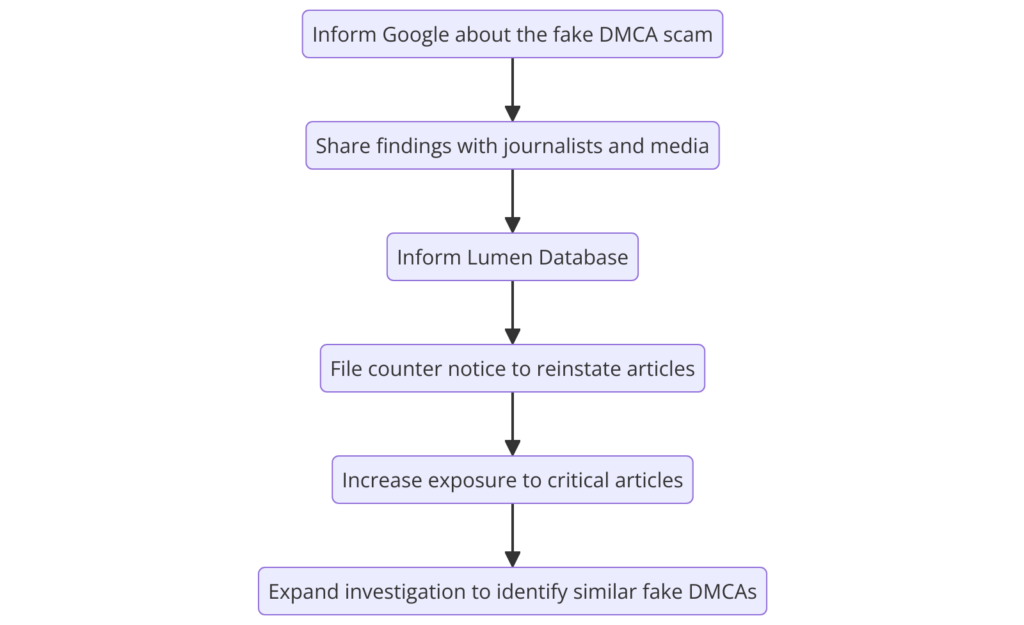
Since Aboubakar Hima made such efforts to hide something online, it seems fit to ensure that this article and our original review of Aboubakar Hima, including but not limited to user contributions, remain a permanent record for anyone interested in Aboubakar Hima.
A case perfect for the Streisand effect…
Potential Consequences for Aboubakar Hima
Under Florida Statute 831.01, the crime of Forgery is committed when a person falsifies, alters, counterfeits, or forges a document that carries “legal efficacy” with the intent to injure or defraud another person or entity.
Forging a document is considered a white-collar crime. It involves altering, changing, or modifying a document to deceive another person. It can also include passing along copies of documents that are known to be false. In many states in the US, falsifying a document is a crime punishable as a felony.

Additionally, under most laws, “fraud on the court” is where “a party has sentiently set in motion some unconscionable scheme calculated to interfere with the judicial system’s ability impartially to adjudicate a matter by improperly influencing the trier of fact or unfairly hampering the presentation of the opposing party’s claim or defense.” Cox v. Burke, 706 So. 2d 43, 46 (Fla. 5th DCA 1998) (quoting Aoude v. Mobil Oil Corp., 892 F.2d 1115, 1118 (1st Cir. 1989)).
Is Aboubakar Hima Committing a Cyber Crime?
Yes, it seems so. Aboubakar Hima used multiple approaches to remove unwanted material from review sites and Google’s search results. Thanks to protections allowing freedom of speech in the United States, there are very few legal ways to do this. Aboubakar Hima could not eliminate negative reviews or search results that linked to them without a valid claim of defamation, copyright infringement, or some other clear breach of the law.
Faced with these limitations, some companies like Aboubakar Hima have gone to extreme lengths to fraudulently claim copyright ownership over a negative review in the hopes of taking it down.
Fake DMCA notices have targeted articles highlighting the criminal activity of prominent people to hide their illegal behavior. These people, which include US, Russian, and Khazakstani politicians as well as members from elite circles including the mafia and those with massive financial power, are all connected – and alleged corruption ranging from child abuse to sexual harassment is exposed when exploring evidence found at these URLs. It appears there’s a disturbing level of influence being exerted here that needs further investigation before justice can be served. Aboubakar Hima is certainly keeping interesting company here….

The DMCA takedown process requires that copyright owners submit a takedown notice to an ISP identifying the allegedly infringing content and declaring, under penalty of perjury, that they have a good faith belief that the content is infringing. The ISP must then promptly remove or disable access to the content. The alleged infringer can then submit a counter-notice, and if the copyright owner does not take legal action within 10 to 14 days, the ISP can restore the content.
Since these platforms are predominantly based in the U.S., the complaints are typically made under the Digital Millennium Copyright Act (DMCA), which requires online service providers and platforms to react immediately to reports or violations. Big Tech companies rarely have systems in place to assess the merit of each report. Instead, all bad actors need to do is clone a story, backdate it, and then demand the real thing be taken down.
Reputation Agency’s Modus Operandi
The fake DMCA notices we found always use the “back-dated article” technique. With this technique, the wrongful notice sender (or copier) creates a copy of a “true original” article and back-dates it, creating a “fake original” article (a copy of the true original) that, at first glance, appears to have been published before the true original.

Then, based on the claim that this backdated article is the “original,” the scammers send a DMCA to the relevant online service providers (e.g. Google), alleging that the ‘true’ original is the copied or “infringing” article and that the copied article is the “original,” requesting the takedown of the ‘true’ original article. After sending the DMCA request, the person who sent the wrong notice takes down the fake original URL, likely to make sure that the article doesn’t stay online in any way. If the taked





